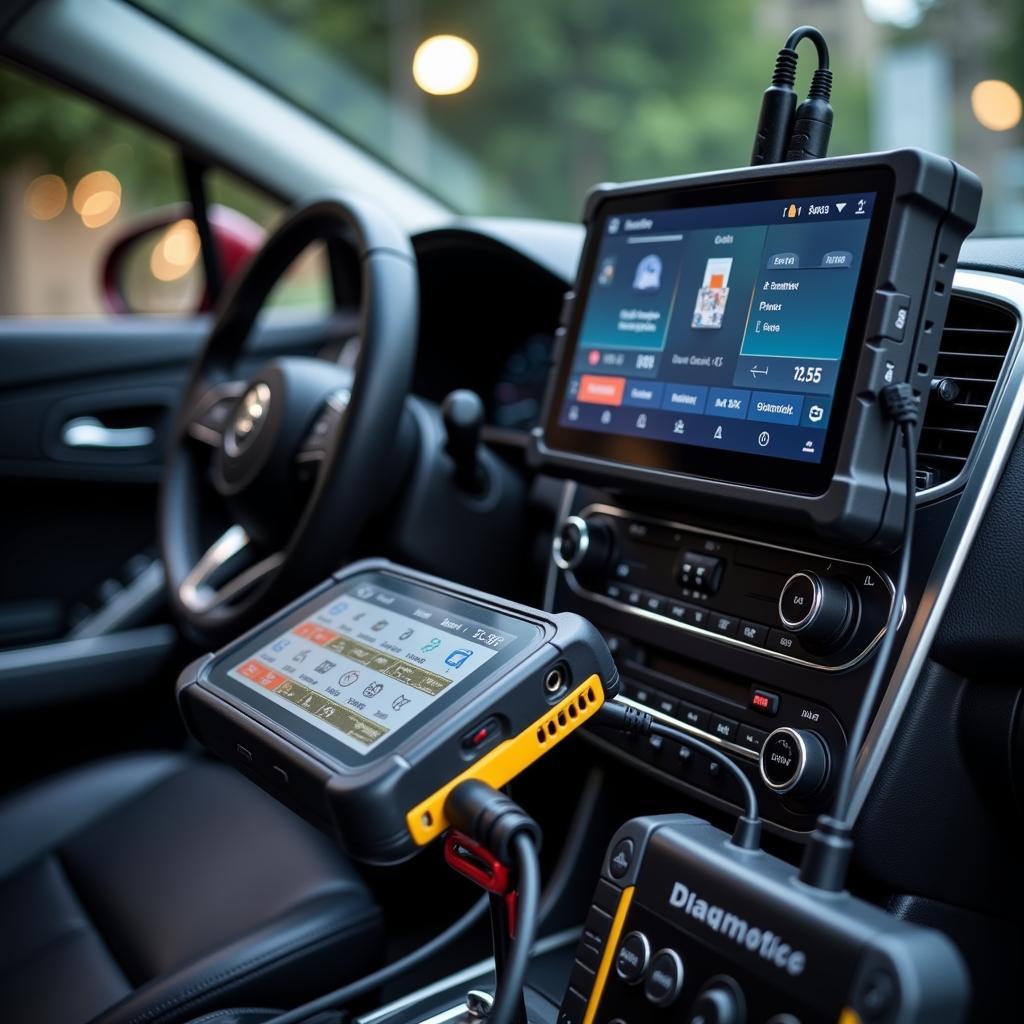Purchasing a used car can be an exciting process, but it also comes with inherent risks. While factors like mileage, appearance, and vehicle history are important, one crucial aspect often overlooked is conducting a thorough car diagnostic check. This step can save you from costly repairs and headaches down the road. Let’s delve into why checking diagnostics is absolutely essential when buying a used car.
Unmasking Hidden Problems: The Power of a Diagnostic Check
A car diagnostic check, also known as a car scan, involves plugging a specialized tool into your vehicle’s onboard computer system, the Engine Control Unit (ECU). This scan retrieves valuable data about the car’s health, revealing potential issues that might not be obvious during a visual inspection.
Think of it as a health checkup for your car. Just like a doctor uses various tests to assess your well-being, a diagnostic scan unveils the inner workings of your potential purchase. This data-driven approach allows you to make informed decisions, avoiding vehicles with underlying problems that could turn into financial burdens later.
 Car Diagnostic Tools Connected
Car Diagnostic Tools Connected
What a Diagnostic Check Reveals:
1. Engine Health: The scan assesses the engine’s performance, identifying issues related to fuel efficiency, ignition timing, and emissions.
2. Transmission Performance: It analyzes the transmission system for smooth shifting, slippage, and potential problems that could lead to costly repairs.
3. Electronic System Faults: The scan detects any malfunctions in the vehicle’s electronics, including airbags, ABS, power windows, and other crucial components.
4. Safety System Integrity: A diagnostic check can identify problems with airbags, seatbelts, and other safety systems that could compromise your well-being.
 Mechanic Reviewing Car Diagnostics Report
Mechanic Reviewing Car Diagnostics Report
Don’t Be Caught Off Guard: Common Issues Diagnostics Can Uncover
“Check Engine” Light Mystery: A glowing “Check Engine” light is a clear indicator that something needs attention. A diagnostic scan pinpoints the exact cause, whether it’s a loose gas cap, a faulty sensor, or a more serious engine problem.
Hidden Transmission Troubles: A car might seem to drive fine during a test drive, but a diagnostic scan can reveal underlying transmission problems like slipping gears or solenoid issues, saving you from expensive repairs later.
Airbag Concerns: A malfunctioning airbag system poses a serious safety risk. A diagnostic scan can detect faulty sensors, wiring issues, or deployment problems, ensuring your safety on the road.
Protecting Your Investment: The Importance of Professional Diagnostics
While some diagnostic tools are available for DIY enthusiasts, it’s crucial to understand that interpreting the results accurately requires expertise. A qualified mechanic or automotive technician possesses the knowledge and experience to decipher the codes and provide a comprehensive assessment of the vehicle’s condition.
Peace of Mind and Informed Decisions
By investing in a professional car diagnostic check when buying a used car, you gain valuable peace of mind and the information needed to make informed decisions. This proactive approach can potentially save you thousands of dollars in unforeseen repairs and ensure you drive away in a reliable vehicle. Remember, a small investment in diagnostics today can lead to significant savings and a smoother ownership experience tomorrow.

Leave a Reply